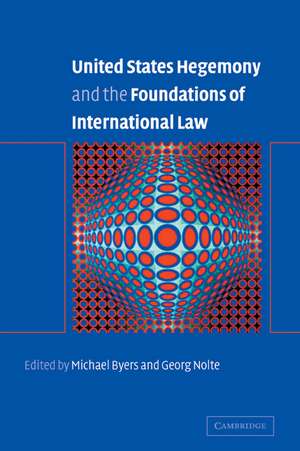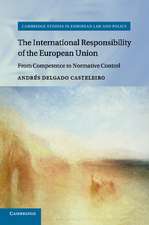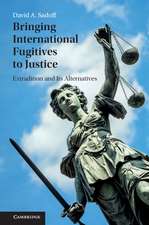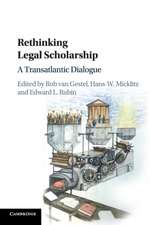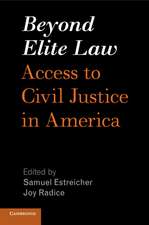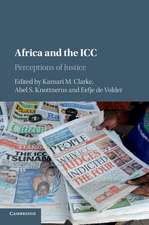United States Hegemony and the Foundations of International Law
Editat de Michael Byers, Georg Nolteen Limba Engleză Paperback – 20 ian 2008
| Toate formatele și edițiile | Preț | Express |
|---|---|---|
| Paperback (1) | 434.18 lei 6-8 săpt. | |
| Cambridge University Press – 20 ian 2008 | 434.18 lei 6-8 săpt. | |
| Hardback (1) | 1011.00 lei 6-8 săpt. | |
| Cambridge University Press – 28 mai 2003 | 1011.00 lei 6-8 săpt. |
Preț: 434.18 lei
Nou
Puncte Express: 651
Preț estimativ în valută:
83.08€ • 86.97$ • 68.74£
83.08€ • 86.97$ • 68.74£
Carte tipărită la comandă
Livrare economică 05-19 aprilie
Preluare comenzi: 021 569.72.76
Specificații
ISBN-13: 9780521050869
ISBN-10: 0521050863
Pagini: 552
Dimensiuni: 151 x 228 x 30 mm
Greutate: 0.8 kg
Ediția:1
Editura: Cambridge University Press
Colecția Cambridge University Press
Locul publicării:Cambridge, United Kingdom
ISBN-10: 0521050863
Pagini: 552
Dimensiuni: 151 x 228 x 30 mm
Greutate: 0.8 kg
Ediția:1
Editura: Cambridge University Press
Colecția Cambridge University Press
Locul publicării:Cambridge, United Kingdom
Cuprins
List of contributors; Preface; Introduction: the complexities of foundational change Michael Byers; Part I. International Community: 1. The international community, international law and the United States: three in one, two against one, or one and the same? Edward Kwakwa; 2. The influence of the United States on the concept of the 'International Community' Andreas Paulus; 3. Comments on chapters 1 and 2 Martti Koskenniemi, Steven Ratner and Volker Rittberger; Part II. Sovereign Equality: 4. Sovereign equality: 'the Wimbledon sails on' Michel Cosnard; 5. More equal than the rest? Hierarchy, equality and US predominance in international law Nico Krisch; 6. Comments on chapters 4 and 5 Pierre-Marie Dupuy, Matthias Herdegen and Gregory H. Fox; Part III. Use of Force: 7. The use of force by the United States after the end of the Cold War, and its impact on international law Marcelo G. Kohen; 8. Bending the law, breaking it, or developing it? The United States and the humanitarian use of force in the post-Cold War era Brad R. Roth; 9. Comments on chapters 7 and 8 Thomas Franck, Jochen Abr. Frowein and Daniel Thürer; Part IV. Customary International Law: 10. Powerful but unpersuasive? The role of the United States in the evolution of customary international law Stephen Toope; 11. Hegemonic custom? Achilles Skordas; 12. Comments on chapters 10 and 11 Rainer Hofmann, Andrew Hurrell and Rüdiger Wolfrum; Part V. Law of Treaties: 13. The effects of US predominance on the elaboration of treaty regimes and on the evolution of the law of treaties Pierre Klein; 14. US reservations to human rights treaties: all for one and none for all? Catherine Redgwell; 15. Comments on chapters 13 and 14 Jost Delbrück, Alain Pellet and Bruno Simma; Part VI. Compliance: 16. The impact on international law of US noncompliance Shirley V. Scott; 17. Compliance: multilateral achievements and predominant powers Peter-Tobias Stoll; 18. Comments on chapters 16 and 17 Vaughan Lowe, David M. Malone and Christian Tomuschat; Conclusion Georg Nolte; Index.
Recenzii
'The range of topics is impressive and the collection will prove invaluable to students of international law and relations.' Contemporary Review
'… there is no question that this book is an important work … this is a well-written, provocative and insightful work that achieves its objective in presenting a variety of viewpoints on the impact of a predominant superpower on the international legal system. It is an essential read for anyone who is interested in the operation of power in international law.' Cambridge Law Journal
'… considering the strong emotions awakened by the United States' fight against terrorism and in particular the war on Iraq, the book remains a welcome voice of reason, serving as a reminder of the importance of the bigger historical picture.' German Law Journal
'This book offers a valuable insight into how the international legal system is developed and influenced by a hegemonic power … there are clear warnings that the United States has the power to act in ways that can undermine the usual international interactions and institutions. These warnings proved very apt after the book was completed, as the United States and the United Kingdom - a new and an old empire - acted contrary to international law and outside the relevant international institutions to institute armed conflict in Iraq. This book puts this action in context. I recommend it very highly.' Robert McCorquodale, Leiden Journal of International Law
'… this is an extremely thought-provoking and penetrating study and deserves wide reading.' Common Law World Review
'… there is no question that this book is an important work … this is a well-written, provocative and insightful work that achieves its objective in presenting a variety of viewpoints on the impact of a predominant superpower on the international legal system. It is an essential read for anyone who is interested in the operation of power in international law.' Cambridge Law Journal
'… considering the strong emotions awakened by the United States' fight against terrorism and in particular the war on Iraq, the book remains a welcome voice of reason, serving as a reminder of the importance of the bigger historical picture.' German Law Journal
'This book offers a valuable insight into how the international legal system is developed and influenced by a hegemonic power … there are clear warnings that the United States has the power to act in ways that can undermine the usual international interactions and institutions. These warnings proved very apt after the book was completed, as the United States and the United Kingdom - a new and an old empire - acted contrary to international law and outside the relevant international institutions to institute armed conflict in Iraq. This book puts this action in context. I recommend it very highly.' Robert McCorquodale, Leiden Journal of International Law
'… this is an extremely thought-provoking and penetrating study and deserves wide reading.' Common Law World Review
Descriere
Leading scholars consider the effect of US hegemony in the international legal system.
